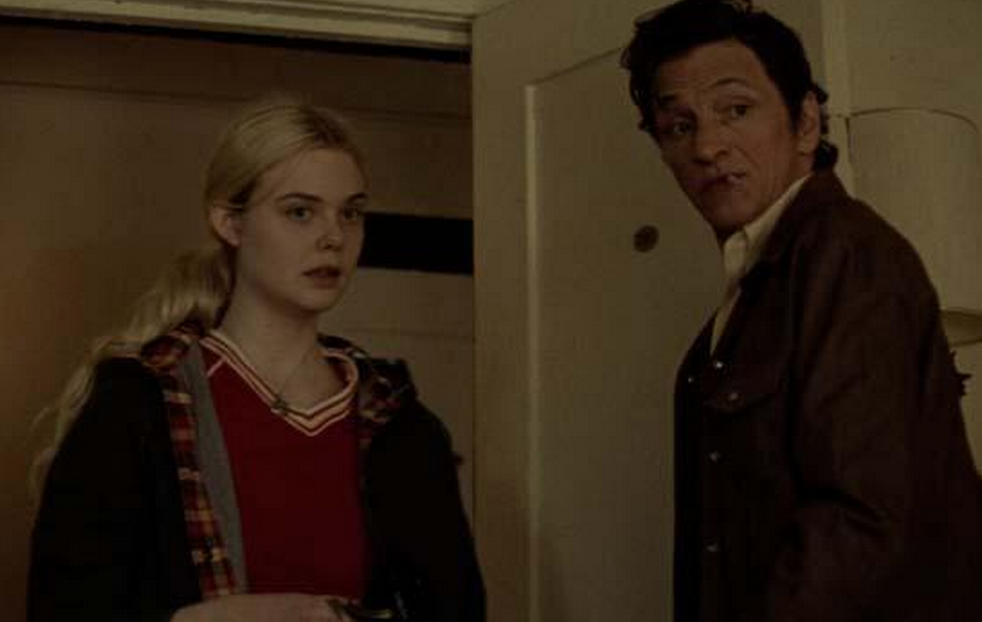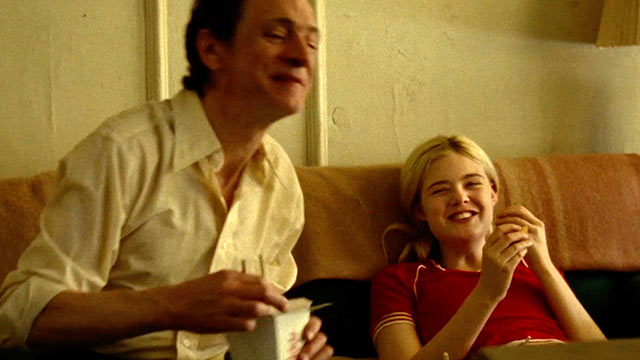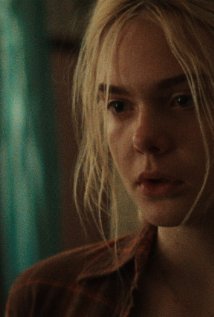 “Low Down” won the cinematography prize at this year’s Sundance Film Festival, and it’s easy to see why. The debut directorial feature of Jeff Preiss (director of photography on “Let’s Get Lost,” “New York Memories”), it is a crimson and gold reverie that bathes the seedy clubs and SRO hotels of early-1970s Hollywood in instant, bittersweet nostalgia. This is a film whose prism of sunlight and shadows would be worth watching all day long as a video installation. As a biopic, though, it is both too much and too little – a shame, as it is based upon A. J. Albany’s very fine memoir about her fraught relationship with her father, acclaimed bee-bop pianist Joe Albany.
“Low Down” won the cinematography prize at this year’s Sundance Film Festival, and it’s easy to see why. The debut directorial feature of Jeff Preiss (director of photography on “Let’s Get Lost,” “New York Memories”), it is a crimson and gold reverie that bathes the seedy clubs and SRO hotels of early-1970s Hollywood in instant, bittersweet nostalgia. This is a film whose prism of sunlight and shadows would be worth watching all day long as a video installation. As a biopic, though, it is both too much and too little – a shame, as it is based upon A. J. Albany’s very fine memoir about her fraught relationship with her father, acclaimed bee-bop pianist Joe Albany.
Until her mid-adolescence A. J., or Amy Jo as she was called back then (she was named after two March daughters in Louisa May Alcott’s Little Women), was a team of two with her daddy. As she writes:
It wasn’t a musically productive period for him, but it’s when I knew him best. If he wasn’t in jail or rehab, we were together …. He heard music everywhere, in the squeaking of rusted bedsprings and the buzzing flies. Dripping faucets were filled with rhythms to him, as was the irregular flashing of the busted neon outside our window. Some shook their heads and thought he was a nut, but I never believed that.
 Amy Jo goes on to describe the life she and Joe led: his addiction to heroin, her addiction to horror movies, and their shared love of jazz, of scratchy record albums filling their never-ending nights. She doesn’t glamourize her childhood. Instead, she details her mostly absent mother’s cruel alcoholic rants, her ever-gnawing hunger, the wildly inappropriate adults to whom she was exposed, and Joe’s nods with an abstracted, often-bemused fondness. That she was only six when the events of this book begin seems a head-scratcher even to her. But rather than devolving into a “victimology” or a “dear dad defense,” Low Down pulses with the rhythms of her father’s music: angular, yearning, and surprisingly tender.
Amy Jo goes on to describe the life she and Joe led: his addiction to heroin, her addiction to horror movies, and their shared love of jazz, of scratchy record albums filling their never-ending nights. She doesn’t glamourize her childhood. Instead, she details her mostly absent mother’s cruel alcoholic rants, her ever-gnawing hunger, the wildly inappropriate adults to whom she was exposed, and Joe’s nods with an abstracted, often-bemused fondness. That she was only six when the events of this book begin seems a head-scratcher even to her. But rather than devolving into a “victimology” or a “dear dad defense,” Low Down pulses with the rhythms of her father’s music: angular, yearning, and surprisingly tender.
At first, “Low Down” takes its cues from Amy Jo’s syncopated prose, and it feels wonderful, like a vicarious, doggedly unhealthy pleasure. It opens when Jo (as she is called in the film, presumably to mirror her father) is thirteen. She is played by Elle Fanning, who certainly resembles the real Jo at that age: at once gangly and doughy, with a pale blond mane and wide blue eyes. The Great John Hawkes portrays Joe; interestingly, he also closely resembles his real-life counterpart. The effect – especially given the spot-on period flourishes (the housedresses, the linoleum floors, the sweaty vinyl couches, the raggedy Indian dresses and polished, pointy boots) – is one of a documentary structured like a haiku. Joe and Jo listen to music, eat from a hot plate, smile silently across their one-room apartment at each other. Joe gets busted, Jo visits him in rehab with her tough-love grandmother (Glenn Close like we’ve never seen her), Joe comes home, and they begin their domestic (swing) dance again.
 The problem is this auto-repeat prose poem is actually a movie, and so eventually Preiss imposes some semblance of a plot upon it. The results are mechanical, like a dryly written afterword. Rather than explore Jo’s growing skepticism about her father, for example, the film manufactures a love interest for her (a wild-eyed lug, played by Caleb Landry Jones) who retriggers all the trauma she experienced as the daughter of addicts. It feels painfully Screenplay 101 but that’s not this film’s biggest issue. That would be, alas, Fanning herself.
The problem is this auto-repeat prose poem is actually a movie, and so eventually Preiss imposes some semblance of a plot upon it. The results are mechanical, like a dryly written afterword. Rather than explore Jo’s growing skepticism about her father, for example, the film manufactures a love interest for her (a wild-eyed lug, played by Caleb Landry Jones) who retriggers all the trauma she experienced as the daughter of addicts. It feels painfully Screenplay 101 but that’s not this film’s biggest issue. That would be, alas, Fanning herself.
In last spring’s “Maleficent,” Fanning played the dullest princess in the history of Disney, which is really saying something. Here, her Jo is so dumbly worshipful that it’s hard to believe such a flower would survive the hustlers, hookers, and hopheads peopling her father’s world. It’s not entirely her fault. A. J. Albany, who co-wrote this screenplay, has created an on-screen stand-in who’s far blanker than the scrappy girl-child stalking through her memoir:
 Trying to look out for yourself at all of six years old can be a brain-twisting experience. Sometimes I’ll walk by a kid now and be able to tell immediately, that’s where their life is at. You can recognize it in the hard way they set their face, and in the eyes, at once empty and wise, ready to weep and tell you to fuck off at any time. I look at them and see myself as a kid.
Trying to look out for yourself at all of six years old can be a brain-twisting experience. Sometimes I’ll walk by a kid now and be able to tell immediately, that’s where their life is at. You can recognize it in the hard way they set their face, and in the eyes, at once empty and wise, ready to weep and tell you to fuck off at any time. I look at them and see myself as a kid.
As written in the film, Jo channels none of this heartbreaking watchfulness. She is a big, beautiful rag doll who only comes alive when her father winds her up. Still, “Low Down” is largely nonverbal; a more nuanced actress might’ve found the wily coyote living in between the lines. Instead, Fanning’s sweet obedience has only one note. In a film about jazz music, that’s especially unforgivable.
